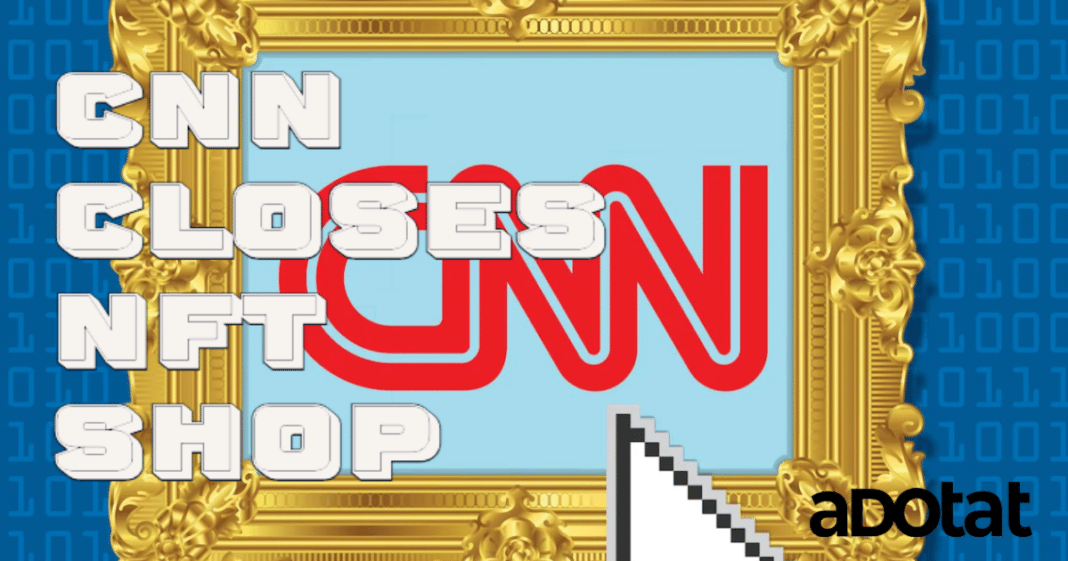In June 2021, when Bitcoin was trading at $35,585, CNN rolled out an NFT project called Vault by CNN. The goal of the project was to allow people to bid on and “own” notable moments from the CNN TV archives. However, 16 months later, with Bitcoin trading at $19,125, CNN is under new management and is pulling the plug on Vault.
What Is NFT?
NFT is a digital asset that can represent anything from a blog post to a piece of art to a tweet. They are stored on a blockchain, which is a decentralized ledger that allows for secure and transparent transactions. NFTs are unique and cannot be replicated, which makes them valuable.
Why Is CNN Cancelling Its NFT Project?
WhenCNN launched Vault by CNN, it was under different management than it is now. The current management team is in “efficiency mode” and does not see the value in continuing the NFT project. Additionally, with Bitcoin’s price falling, there is less interest in NFTs overall. Lastly, CNN is focusing on other projects that it believes will be more successful.
No really, why is CNN’s NFT Project Failing?
CNN’s NFT project was doomed from the start for a number of reasons. First, the commission structure was not favorable for sellers. Second, there was very little demand for the products being offered for sale. And third, CNN did not have the infrastructure in place to support an NFT platform—which meant that buyers and sellers were often left frustrated by technical issues.
However, this concept was flawed for a number of reasons. NFTs in their current state are primarily used to claim ownership of digital art. This is due to the lack of utility in other mediums such as the metaverse or video games. The idea behind CNN selling NFTs of its news stories was that buyers would have ownership of the story. However, this raises a number of questions.
Primarily, it begs the question: what would buyers actually do with these NFTs? Unlike digital art, news stories are not scarce and they can be easily copied and shared. There is no need for an intermediary to verify ownership because the original author still owns the copyright to the story. Therefore, the value of these NFTs would be primarily speculative.
In addition, this experiment goes against one of the key principles of journalism: journalism should be free from interference by outside parties. By allowing buyers to own news stories, there is a risk that they could censor or change the stories to fit their own agendas. This would undermine the credibility of CNN and damage its reputation as a reliable source of news.
“There goes my CNN Vault investment, never would have guessed CNN as a company pulling a rug,” user MM81 said in the Vault by CNN Discord server. “I feel sorry for the people who put time into developing this.”
What Does This Mean for Other Publisher Web3/NFT Projects?
The cancellation of Vault by CNN does not portend well for other publisher web3/NFT projects. Publishers are increasingly looking for ways to monetize their content and tap into new revenue streams. However, if projects like Vault by CNN are unsuccessful, it will likely discourage other publishers from pursuing similar initiatives.
Consequently, this could limit the growth of the NFT market and hamper innovation in the space.
Why NFTs Matter for Marketers
NFTs matter for marketers because they are a new way to reach and engage with customers. Marketers can use NFTs to create unique experiences that cannot be replicated. For example, Coca-Cola used an NFT to auction off a virtual Hug Coke can that could only be used by the winner.
NFTs also offer marketers a new way to monetize their content. Marketers can create NFTs out of their existing content or create new content specifically for an NTF sale. For example, Nike created an NFT out of one of its popular Air Max shoes and sold it for $16,000.
While the cancellation of Vault by CNN doesn’t spell doom for all NFT projects, it does show that there is still a lot of work to be done in terms of getting publishers on board with the idea. Trust needs to be established and projects need to be designed in a way that meets the needs of both publishers and users. Otherwise, we may see more cancellations like this one in the future.




